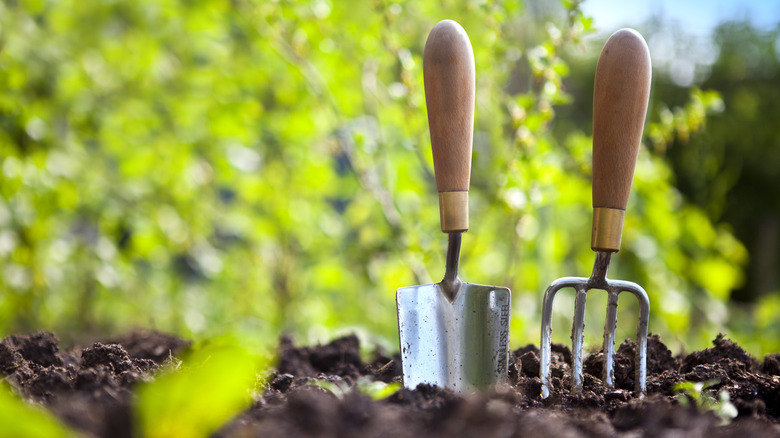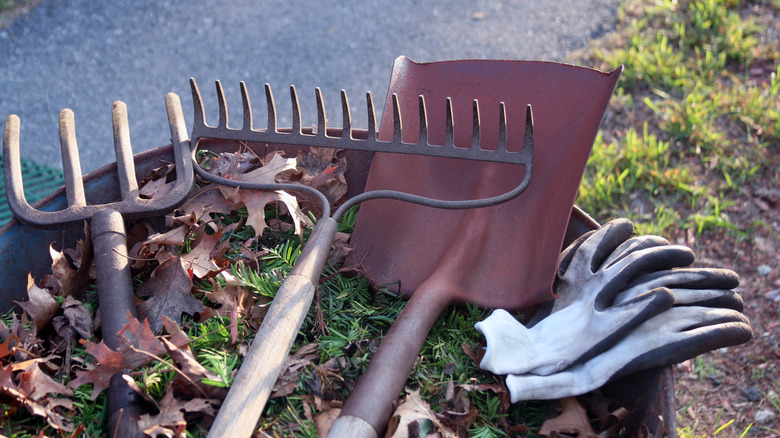The Benefit Of Cleaning Gardening Tools With Vinegar
If you're one of the many who swear distilled white vinegar is the best thing ever for cleaning around the house, you may have wondered if you can extend that to your gardening tools. Since vinegar is non-toxic and easy to use, carrying those benefits over to cleaning outdoor tools would indeed seem logical. The good news is, according to the NC Cooperative Extension, you can most certainly employ white vinegar right out of the bottle for cleaning everything from pruning shears to shovels. If your tools are barely dirty, you might be able to get away with spraying them down with vinegar, letting them sit for several minutes, rinsing with water, and wiping them clean.
When tools get super rusty, though, you may have to soak them in vinegar for a longer period. For small tools like pruning shears, you can put them cutter side down in a glass canning jar and then pour enough vinegar over the blade and other rusty metal parts to cover them. The same method applies to handheld spades and weeders as well. Let them soak several hours, and if they're still rusty, you can extend that to overnight (up to 24 hours). Once clean, rinse the tool with clean water and dry it with a soft rag. If there's any lingering loose rust, you can use a wire brush or heavy duty scouring pad to finish cleaning it.
Easily cleaning larger garden tools with cost-effective vinegar
Since you can't fit a hoe or a rake in a small container, you'll need to employ other methods to reap the benefits of cleaning larger gardening tools with vinegar. Again, you can try spraying them down with vinegar, if they aren't extremely dirty or rusty. For something like a shovel that needs more attention, however, you can place the head in a plastic bucket, pour in enough white vinegar to cover it, and soak it overnight. When clean, rinse with water and dry thoroughly. Rakes are a bit trickier, but not impossible. As recommended by NC Cooperative Extension, the tines on a rake can be wrapped in newspaper soaked with white vinegar. If once isn't enough, repeat the process for a second overnight session, then rinse and dry.
It's true that you're going to need a lot of vinegar to accomplish these tasks. Buying a large jug at your local warehouse store can help reduce the cost, which is already low in comparison to all-purpose metal cleaning sprays that can cost two to three times as much and aren't always as eco-friendly. You can also prevent rust from recurring by rubbing your gardening tools down with a bit of vegetable oil applied to a soft cloth after they're clean. After all, even though vinegar has the benefit of being easy to use, cost-effective, and non-toxic, it's still better to work smarter rather than harder.

